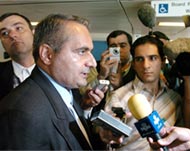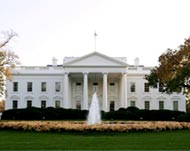Iran safe from sanctions for now
The UN nuclear watchdog meets on Monday in Vienna with Iran virtually safe from possible UN sanctions after agreeing to a full freeze of all nuclear enrichment activities that could make uranium for atomic weapons.

The Iranian government had sent a letter on Sunday to the watchdog International Atomic Energy Agency (IAEA) withdrawing its demand to exempt 20 centrifuges from a freeze of its uranium enrichment activities, Iranian nuclear negotiator Hossein Moussavian said.
Hardliners in Iran had said the exemption should be maintained for research purposes but Moussavian said: “I confirm Iran will permit the IAEA to place these components, 20 centrifuges, under agency surveillance.
“Iran will not conduct any testing (of the centrifuges),” he said.
EU negotiators Britain, France and Germany had given Iran until late Sunday to agree to a full freeze, based on an enrichment suspension the four countries had agreed to in Paris on 7 November, and which began on 22 November.
If Iran did not finally comply, the European trio were ready to propose a tough resolution at an IAEA meeting, which was supposed to end after two days on Friday, but was adjourned until Monday due to the deadlock, diplomats said.
‘Constructive engagement’
With Iran agreeing to a full suspension, the European trio submitted on Sunday a relatively soft draft resolution on Iran’s nuclear programme, diplomats said.
 |
|
Hossein Moussavian says Iran |
The text is expected to be adopted by consensus by the IAEA on Monday.
The United States wants the IAEA to send Iran before the UN Security Council, which could impose sanctions, for what it says is a covert nuclear weapons programme, but this is unlikely now that Iran has agreed to a full suspension and accepted the European resolution, diplomats said.
The European trio has for more than a year been working for “constructive engagement” for Iranian cooperation with the IAEA.
The trio (EU3) negotiated a uranium enrichment suspension in October 2003, but this fell apart when Tehran continued making centrifuges, the machines which enrich uranium for nuclear fuel but also for what, in a highly refined form, can be the explosive core of atomic bombs.
US adamant
US officials said Washington was ready to back the latest European proposal as long as Iran fully suspended uranium enrichment.
 |
|
Washington wants the freeze to |
Washington is biding its time as it is convinced evidence will emerge of a covert Iranian programme, diplomats said.
A European diplomat said the freeze and the draft resolution were “certainly a big step forward but it’s not the end of the story”.
“There are still difficult questions about Iran’s enrichment programme,” with Iran wanting the freeze to be temporary and the EU, as well as the United States, seeking for it to be permanent, the diplomat said.
Moussavian said Iran would “discuss further with the EU3 in December when discussions for a long-term arrangement (on the freeze) commence”.
It was not clear if this meant Iran planned to review in December, once the IAEA board meeting is over, or whether centrifuges could be used for research, diplomats said.
Compromise
The draft resolution is a painstaking compromise between US hardline demands and Iranian threats to stop cooperating, diplomats said.
The resolution calls for continuing investigations into sensitive aspects of Iran’s programme as agency chief Muhammad al-Baradai has said that while no diversion of nuclear materials for weapons purposes has been detected, he can not yet rule out that there is covert activity.
Moussavian said the last problem in the resolution had been a phrase that “underlines that the full and sustained implementation of this confidence-building measure is essential to addressing outstanding issues”.
Diplomats said the word “essential” was left in while Iran won a re-working to add the phrase “not legally binding”, as it claims it has the right to enrich uranium according to the nuclear Non-Proliferation Treaty (NPT), even it is for now voluntarily agreeing to a freeze.